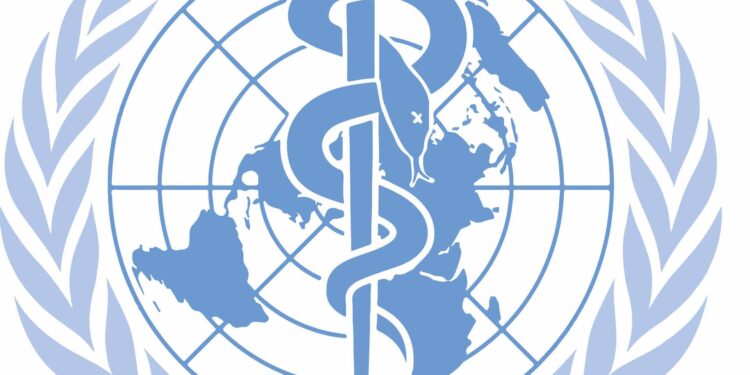In a compelling call to action, the World Health Organization (WHO) has underscored the pressing need for urgent global interventions as the world gears up for the 30th Conference of the Parties (COP30) in Brasília. As health and climate converge on the international stage, the WHO’s latest initiative highlights the intricate links between environmental change and public health, urging nations to prioritize sustainable practices in their climate agendas. With mounting evidence of climate-related health risks-from rising temperatures to increased respiratory issues-the WHO’s appeal serves as a crucial reminder that addressing climate change is integral not only for the planet’s future but also for safeguarding global health. This pivotal conference promises to be a platform for dialogue, collaboration, and decisive action in the face of an escalating climate crisis.
WHO Calls for Global Collaboration to Tackle Climate-Induced Health Crises
The World Health Organization (WHO) has called for immediate and collective action from nations to address the escalating health crises driven by climate change, highlighting the urgent need for a unified front ahead of COP30. At the global climate and health conference held in Brasília, WHO officials underscored that climate-induced health challenges, including respiratory illnesses, heat-related disorders, and vector-borne diseases, are intensifying. The conference brought together health experts, policymakers, and environmental advocates who stressed that collaborative strategies are essential in mitigating these challenges. Key areas of focus include:
- Strengthening health systems to withstand climate impacts
- Enhancing early warning systems for climate-related health risks
- Investing in sustainable health infrastructures
- Promoting research and innovation in climate and health intersections
As climate change continues to alter environments and ecosystems, the ripple effect is felt across public health sectors globally. The WHO highlighted the need for countries to share resources and knowledge, stating that unity is paramount to developing effective interventions. A recently compiled report showcased emerging health threats influenced by climate patterns, calling for an integrated approach that incorporates climate resilience into health policies. The table below illustrates some key health risks associated with climate change:
| Health Risk | Climate Factor |
|---|---|
| Respiratory Diseases | Increased air pollution |
| Heat-Related Illnesses | Rising temperatures |
| Vector-Borne Diseases | Changing habitats for insects |
| Mental Health Issues | Natural disasters and displacements |
Urgent Recommendations for Policymakers Ahead of COP30 to Protect Vulnerable Populations
The World Health Organization (WHO) has issued a clarion call for immediate action from policymakers as the world prepares for COP30. Vulnerable populations, including those in low-income countries and marginalized communities, face disproportionate threats from climate change. To address this urgent crisis, WHO emphasizes the need for comprehensive health policies that prioritize climate resilience. Key recommendations include:
- Integration of health and climate agendas: Policymakers must ensure that health considerations are woven into climate strategies to safeguard at-risk populations.
- Investment in adaptive health infrastructure: Enhanced funding should be directed towards strengthening health systems that can withstand extreme weather events.
- Promotion of equitable resource distribution: Resources should be allocated to ensure that the most vulnerable individuals receive support to adapt to changing climates.
To facilitate these actions, a collaborative approach is vital. This includes partnerships between governments, civil society, and international organizations. Additionally, the establishment of a dedicated task force at COP30 could help accelerate the implementation of strategies aimed at protecting health in the face of climate change. Possible tasks for this task force would include:
| Task | Objective |
|---|---|
| Data Collection | Gather evidence on health impacts of climate change in vulnerable regions. |
| Policy Development | Create guidelines for integrating health into climate adaptation plans. |
| Resource Mobilization | Secure funding to support health initiatives in at-risk communities. |
Linking Climate Action and Health: Strategies for Sustainable Development at COP30
The World Health Organization (WHO) has emphasized the necessity of linking climate action with health initiatives as nations prepare for COP30. As extreme weather events and environmental degradation continue to threaten health systems, comprehensive strategies must be developed to mitigate these risks. Key areas of focus include:
- Integrative Policy Development: Crafting policies that prioritize both health and environmental sustainability can yield mutual benefits.
- Strengthening Health Systems: Building resilient health infrastructures capable of withstanding climate-related shocks is essential.
- Promoting Sustainable Practices: Encouraging sustainable agricultural and energy practices can improve public health outcomes.
- Addressing Vulnerable Populations: Ensuring that vulnerable communities have access to health resources is critical in adapting to climate change.
At the heart of these strategies is a call for collaboration among governments, NGOs, and the private sector to create innovative solutions. WHO data reveals a growing intersection between climate impact and health incidence rates, highlighting the urgency for swift action:
| Impact Category | Health Consequences | Projected Increase (by 2030) |
|---|---|---|
| Air Quality Deterioration | Respiratory Diseases | 50% |
| Heatwaves | Heat-Related Illnesses | 25% |
| Vector-borne Diseases | Dengue, Malaria | 15% |
| Nutritional Disruption | Malnutrition Rates | 30% |
By prioritizing the intersection of these issues at COP30, stakeholders can lay the groundwork for a healthier planet and population. The urgent call to action from WHO signals a pivotal moment to align climate advocacy with public health goals, ensuring sustainability is woven into the fabric of future development initiatives.
In Summary
As the global community converges in Brasília for the World Health Organization’s pivotal climate and health conference, the urgency for collaborative action has never been clearer. With COP30 on the horizon, WHO’s call to prioritize health in climate policy underscores the intricate relationship between environmental sustainability and public health. As nations grapple with the escalating impacts of climate change, the imperative to integrate health considerations into climate strategies is vital for safeguarding future generations. The discussions and commitments made in the coming days will play a crucial role in shaping global responses to the intertwined crises of climate change and health, emphasizing that there can be no sustainable future without a healthy planet. As stakeholders prepare to take decisive steps forward, the world will be watching closely, hoping for concrete actions that resonate far beyond Brasília.














